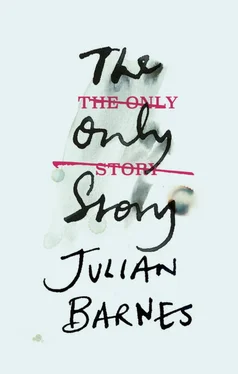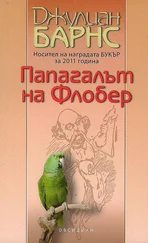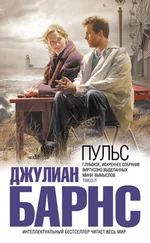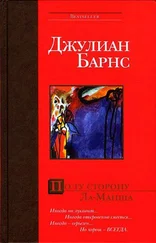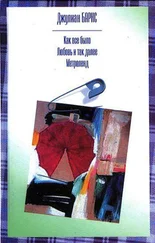She makes what might be an attempt to escape, heading off to the ladies. You let her go with a fifty–fifty expectation that she won’t return. But she does, and you find yourself reflecting cynically that she probably went to the hospital shop to check if they stocked booze, or maybe asked a few nurses where the bar was, only to receive the annoying news that the hospital doesn’t have one.
You realize how sympathy and antagonism can coexist. You are discovering how many seemingly incompatible emotions can thrive, side by side, in the same human heart. You are angry with the books you have read, none of which have prepared you for this. No doubt you were reading the wrong books. Or reading them in the wrong way.
You feel, even at this late, desperate stage, that your emotional situation is still more interesting than that of your friends. They (mostly) have girlfriends and (mostly) have peer sex; some have been inspected by their girlfriends’ parents, receiving approval, disapproval, or judgement suspended. Most have a plan for their future life which includes this girlfriend – or, if not, one very similar. A plan to become furrow-dwellers. But for the moment, they have only the traditional clear-skinned joys, sane dreams, and inchoate frustrations of young men in their mid-twenties with girlfriends of the same age. Yet here you are, in a hospital waiting area, surrounded by mad people, in love with a woman who is being characterized as potentially mad.
And the strange thing is, part of you feels exhilarated by it. You think: not only do you love Susan more than they love their girlfriends – you must do, otherwise you wouldn’t be sitting here among all the nutters – but you are having a more interesting life. They may measure their girlfriends’ brains and breasts, and their future parent-in-laws’ deposit accounts, and imagine they have won; but you are still ahead of them because your relationship is more fascinating, more complicated, and more insoluble. And the proof of this is that you are sitting here on a metal stacking chair, half-reading some discarded magazine, while your beloved dreams of – what? Escape, no doubt: escape from here, escape from you, escape from life? She too is staggering beneath the weight of extreme, unbearable and incompatible emotions. You are both in deep pain. And yet, aware as you are of the stupid, bolloxy world of male competitiveness, you tell yourself that you are still a winner. And when you get to this point in your thoughts, the next logical stage is this: you’re a nutter as well. You are obviously one stark staring, complete and utter nutter. On the other hand, you are the youngest fucking nutter in the whole waiting area. So you have won again! Former under-12, under-6-stone school boxing champion becomes Hospital’s under-26 nutter champion!
At this moment a round, bald, suited man opens the door of the consulting room.
‘Mr Ellis,’ he calls quietly.
There is no reply. Familiar with the inattention, selective deafness and other failings of his patients, the consultant raises his voice:
‘Mr ELLIS!’
Some old fool wearing three sweaters and an anorak gets to his feet; a towelling headband restrains the ten or so wisps of white hair that sprawl from his crown. He stands looking round for a moment, as if perhaps expecting applause for having recognized his own name, then follows the consultant into his office.
You are not prepared for what happens next. You hear the psychiatrist’s voice, quite clearly, say,
‘And how are we today, Mr Ellis?’
You look at the closed door. You see that there is a three-inch gap between the foot of it and the floor. You guess that the consultant must be facing the door. You do not hear a reply from the deaf old fool, but perhaps there hasn’t been one, because next, loud enough to rouse the other nodding nutters, come the words,
‘SO HOW’S THE DEPRESSION, MR ELLIS?’
You are not sure if Susan has been paying attention. For yourself, you think this is unlikely to work.
There is her shame, which is ever present. And then there is your shame, which sometimes presents itself as pride, sometimes as a kind of noble realism; but also, mostly, as what it is – just shame.
You come back one evening to find her pie-eyed in a chair, the water glass by her side still containing a good inch or so of non-water. You decide to behave as if all this is completely normal – indeed, what domestic life is all about. You go into the kitchen and start looking around for something to turn into something. You find some eggs: you ask if she would like an omelette.
‘It’s easy for you,’ she answers belligerently.
‘What’s easy for me?’
‘That’s a clever lawyer’s answer,’ she replies, taking a swig right in front of you, which she rarely does. You are about to go back to cracking eggs, when she adds,
‘Gerald died today.’
‘Which Gerald?’ You can’t immediately think of a Gerald among your mutual friends.
‘Which Gerald indeed? Mr Clever. My Gerald. My Gerald that I told you about. The one I was engaged to. This was the day he died.’
You feel terrible. Not because you have forgotten the date – she has never told you it before – but because, unlike you, she has her dead to remember. Her fiancé, the brother who disappeared out over the Atlantic, Gordon’s father – whose name you no longer remember – who had been soft on her. You have no such figures in your life, no griefs, no holes, no losses. So you don’t know what it’s like. Everyone should remember their dead, you believe, and everyone else should respect this need and desire. You are in fact rather envious, and wish you had a few dead of your own.
Later, you become more suspicious. She has never mentioned the day of Gerald’s death before. And there is no way for you to check. Just as, in happier days, there was no way for you to check when she told you how many times the two of you had made love. Perhaps, when she heard your key turn in the lock, and she was unable to get up and also unwilling to hide the glass at her elbow, she decided – no, this is perhaps too deliberate a verb to describe her mental processes that evening – she ‘realized’, yes, she suddenly realized that it was the day of Gerald’s death. Though it could equally have been Alec’s, or that of Gordon’s father. Who could tell? Who knew? And who, in the end, cared?
I said I never kept a diary. This isn’t strictly true. There was a point, in my isolation and turmoil, when I thought writing things down might help. I used a hardback notebook, black ink, one side of the paper. I tried to be objective. There was no point, I thought, in merely venting my feelings of hurt and betrayal. I remember that the first line I wrote down was:
All alcoholics are liars .
This was, obviously, not based on a huge sample or broad research. But I believed it at the time, and now, decades later, with more field experience, I believe it to be an essential truth about the condition. I went on:
All lovers are truth-tellers .
Again, the sample was small, consisting mainly of myself. It seemed to me evident that love and truth were connected; indeed, as I may have said, that to live in love is to live in truth.
And then the conclusion to this quasi-syllogism:
Therefore, the alcoholic is the opposite of the lover .
This seemed not just logical, but also consistent with my observations.
Nowadays, a lifetime later, the second of these propositions seems the weakest. I have seen too many examples of lovers who, far from living in truth, dwelt in some fantasy land where self-delusion and self-aggrandizement reigned, with reality nowhere to be found.
Yet, even while I was compiling my notebook, searching to be objective, the subjective kept undermining me. For instance, I realized, looking back at our time in the Village, that whereas I thought of myself as both lover and truth-teller, the truths I had told were only to myself and Susan. I told lies to my parents, to Susan’s family, to my own close friends; I even dissembled at the tennis club. I protected the zone of truth with a rampart of lies. Just as she was now lying to me all the time about her drinking. As well as lying to herself. And yet she would still affirm that she loved me.
Читать дальше
